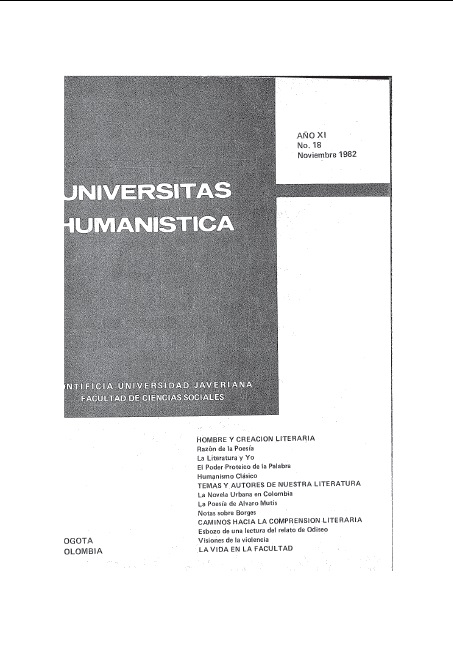Abstract
Frente al desarrollo del Siglo XX que ha convertido al hombre en técnica y a la técnica en hombre, el presente artículo pretende mostrar la necesidad de recuperar los valores del humanismo clásico como un medio para integrar el conjunto de las ciencias actuales en una perspectiva plenamente humana. El autor presenta en una rápida pero penetrante visión el desarrollo del humanismo clásico, desde la ruptura socrática que centró la reflexión teórica en los valores intelectuales y morales, hasta su máxima expresión, en el Renacimiento, cuando el humanismo se equipara al desarrollo pleno y libre del individuo. Partiendo de la concepción de la vida que legó la Grecia clásica, basada sobre dos pilares fundamenta/es: el racionalismo y la belleza, señala aquello que hace a los griegos dignos de nuestro tiempo: sus realizaciones intelectuales, científicas, filosóficas, estéticas y literarias. Esta ignorancia del verdadero contenido del humanismo clásico lo que determina su rechazo en nuestros días.

This journal provides immediate open access to its content on the principle that making research freely available to the public, encourages greater global exchange of knowledge.
The journal Universitas Humanística is registered under a Creative Commons Attribution 4.0 International Public License. Thus, this work may be reproduced, distributed, and publicly shared in digital format, as long as the names of the authors and Pontificia Universidad Javeriana are acknowledged. Others are allowed to quote, adapt, transform, auto-archive, republish, and create based on this material, for any purpose (even commercial ones), provided the authorship is duly acknowledged, a link to the original work is provided, and it is specified if changes have been made. Pontificia Universidad Javeriana does not hold the rights of published works and the authors are solely responsible for the contents of their works; they keep the moral, intellectual, privacy, and publicity rights.
Approving the intervention of the work (review, copy-editing, translation, layout) and the following outreach, are granted through an use license and not through an assignment of rights. This means the journal and Pontificia Universidad Javeriana cannot be held responsible for any ethical malpractice by the authors. As a consequence of the protection granted by the use license, the journal is not required to publish recantations or modify information already published, unless the errata stems from the editorial management process. Publishing contents in this journal does not generate royalties for contributors.


